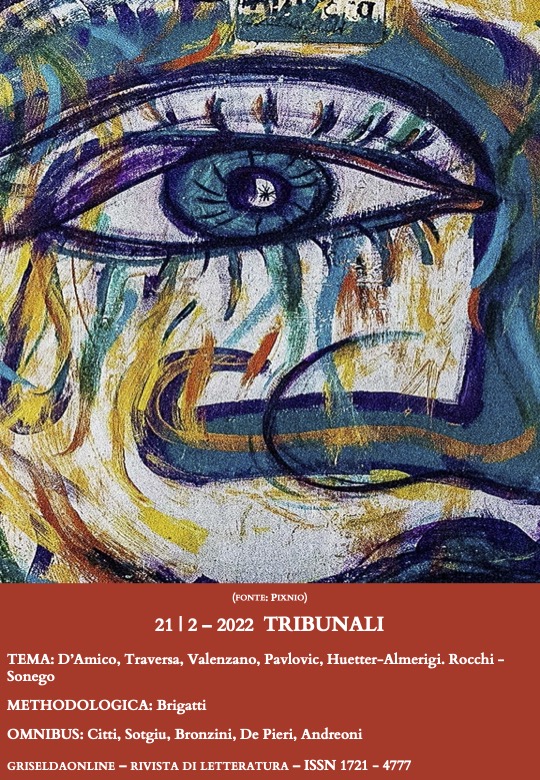Le «Decameron» dans la théorie du roman et de la nouvelle de Friedrich Schlegel
DOI:
https://doi.org/10.6092/issn.1721-4777/15105Keywords:
Boccace, «Décaméron», Friedrich Schlegel, genres littéraires, ironieAbstract
In this article, the author aims to show the role of Boccaccio’s Decameron as an exemplary model of literary fiction in the early critical theory of Friedrich Schlegel. In the first part, the article analyses Schlegel’s definition of the ‘novella’. In the second part, it shows the key role of hermeneutical concepts such as irony, the hybridization of genres, parabasis, and Witz within Schlegel’s interpretation of the Decameron – an interpretation that underlines the strong metaliterary component of the work, and that dismisses any univocal or fixed reading of Boccaccio’s masterpiece.
Downloads
Published
2023-01-06
How to Cite
Sotgiu, A. (2022). Le «Decameron» dans la théorie du roman et de la nouvelle de Friedrich Schlegel. Griseldaonline, 21(2), 123–136. https://doi.org/10.6092/issn.1721-4777/15105
Issue
Section
Omnibus
License
Copyright (c) 2022 Antonio Sotgiu

This work is licensed under a Creative Commons Attribution-ShareAlike 4.0 International License.





